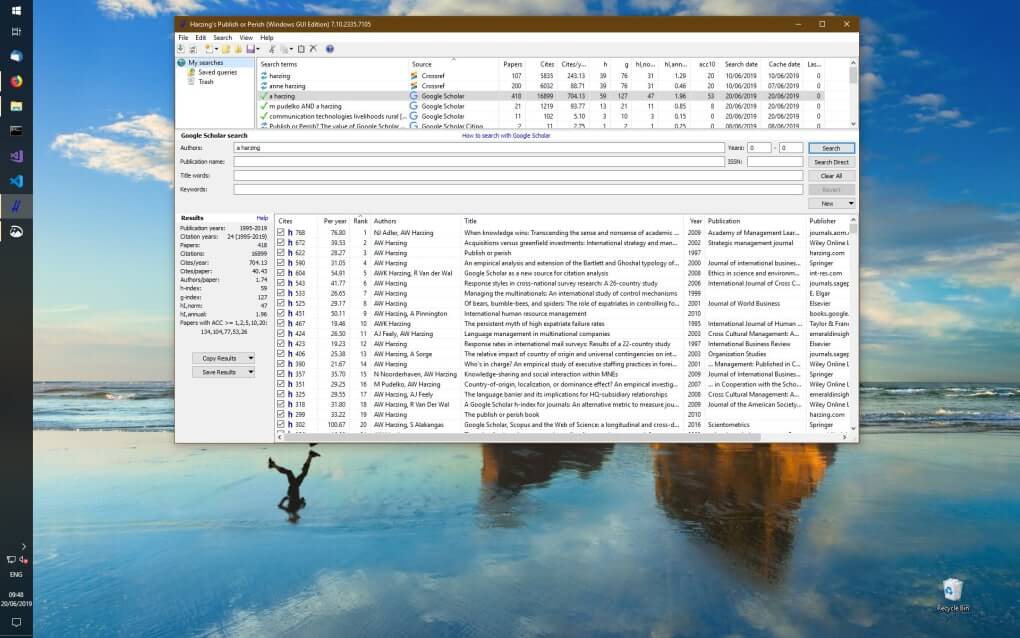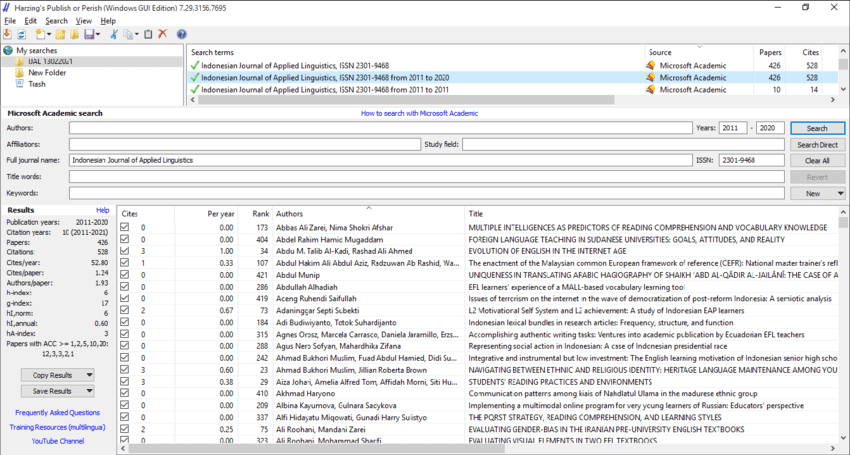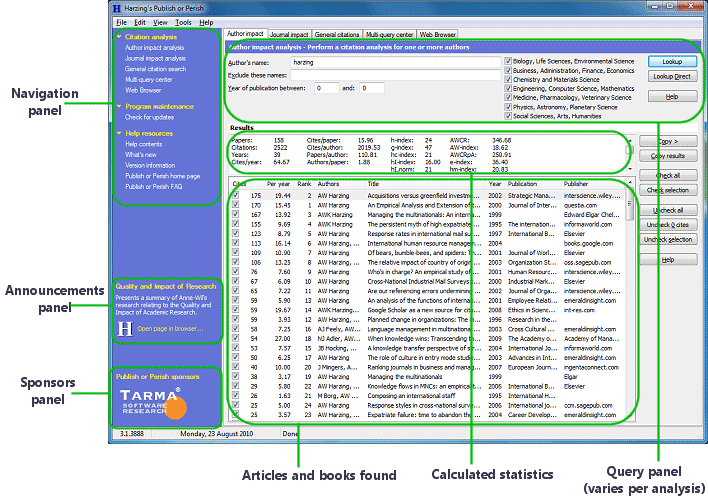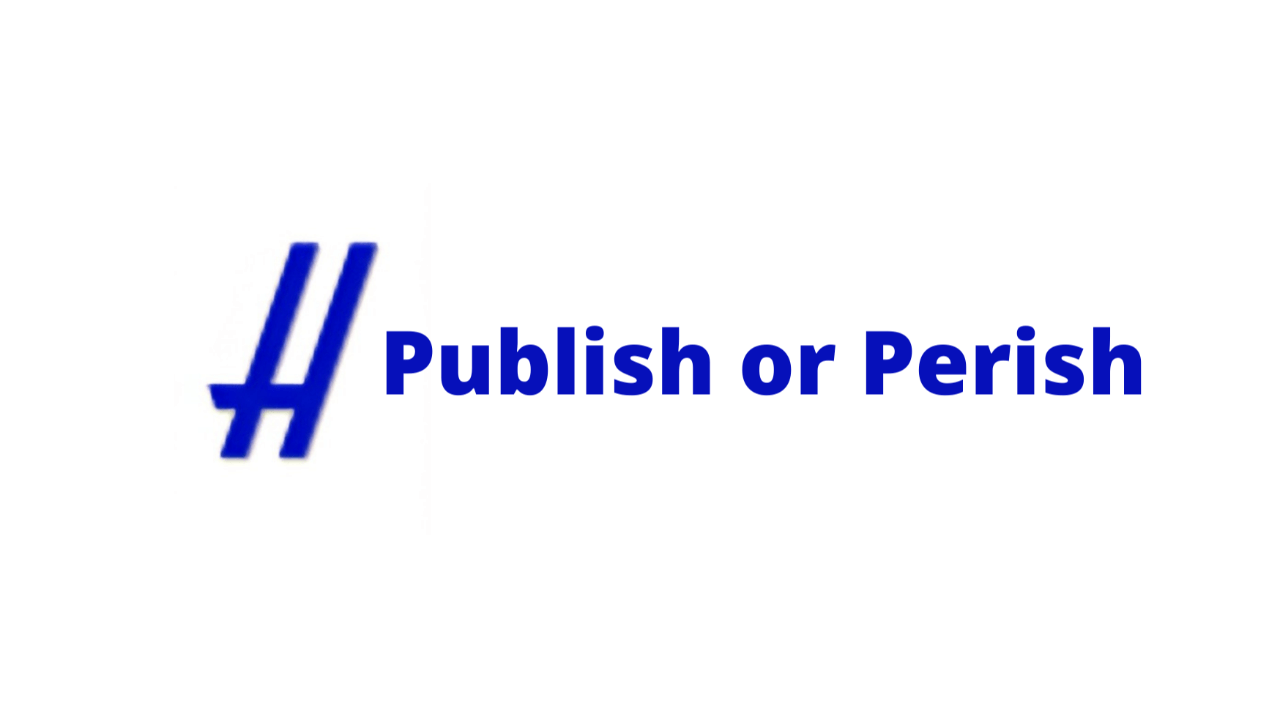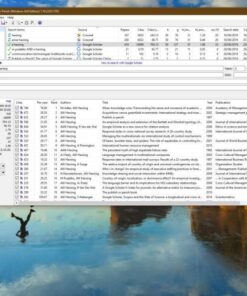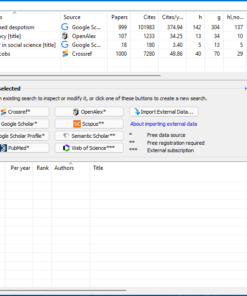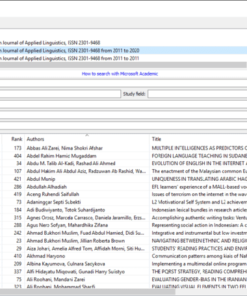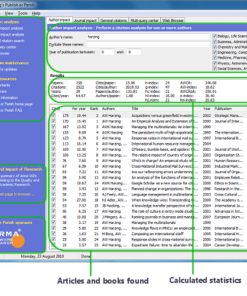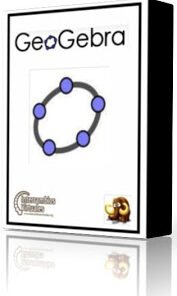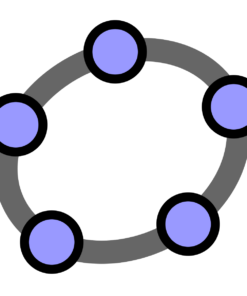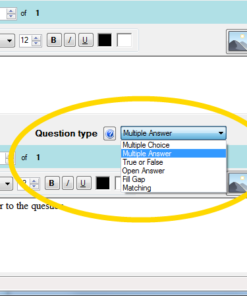Publish or Perish 8.2
35.99$
Publish or Perish (PoP) is a Windows ( 11, 10, 8.1, 8, 7) software designed to help academic scholars retrieve and analyze citations. It’s a comprehensive, feature-rich tool that uses several data sources like Microsoft Academic Search (MSA) and Google Scholar (GS) to gather raw data. It then analyzes and presents this data via different metrics like Hirsch’s h-index, contemporary h-index, Egghe g-index, age-weighted citation rate, etc.
Publish or Perish (PoP) is a Windows ( 11, 10, 8.1, 8, 7) software designed to help academic scholars retrieve and analyze citations. It’s a comprehensive, feature-rich tool that uses several data sources like Microsoft Academic Search (MSA) and Google Scholar (GS) to gather raw data. It then analyzes and presents this data via different metrics like Hirsch’s h-index, contemporary h-index, Egghe g-index, age-weighted citation rate, etc.
Once you complete the Publish or Perish download, you can search and get the results directly on the screen. These results can be copied to the clipboard and pasted on another sheet. You can also save the information for future reference. Moreover, Publish or Perish provides users with a detailed help section that offers tips, as well as information about different citation metrics. Compared to alternatives like Qiqqa, Zotero, and JabRef, Publish or Perish is easy to use and suitable for researchers, students, and academic teams.
Makes writing research papers easier
If you’re a student or a researcher, you probably work with several papers and academic articles. Keeping track of the author, the publisher, the publishing date, and other such details required for citation can be a difficult task. Publish or Perish software, developed by Anne-Wil Harzing, is a simple academic tool that can help you find journals and papers effortlessly. All you need is the author name or the publication date or the field of study to get a list containing all relevant information.
What are the features of Publish or Perish?
Publish or Perish software for Windows is a client for MSA and GS. Whenever you search for something on PoP, it sends a query to the academic pages of Google or Microsoft to provide results. While the app works with Google Scholar by default, you will have to subscribe to the MSA free API so that the app can access Microsoft’s database. Once you do that, you can easily find any paper by its name, keyword, or publication.
Apart from performing a comprehensive search, it lets users save all search results. This way, you can easily refer to all your queries whenever you’re in doubt. You can also save PoP data in different formats like ISI, RIS, CSV, PDF, EndNote, and more. In addition to saving, you can also plot the citation to get a better understanding of the data that it presents.
Related products
EducationalSoftware
EducationalSoftware
EducationalSoftware
EducationalSoftware
EducationalSoftware
EducationalSoftware
EducationalSoftware
EducationalSoftware


